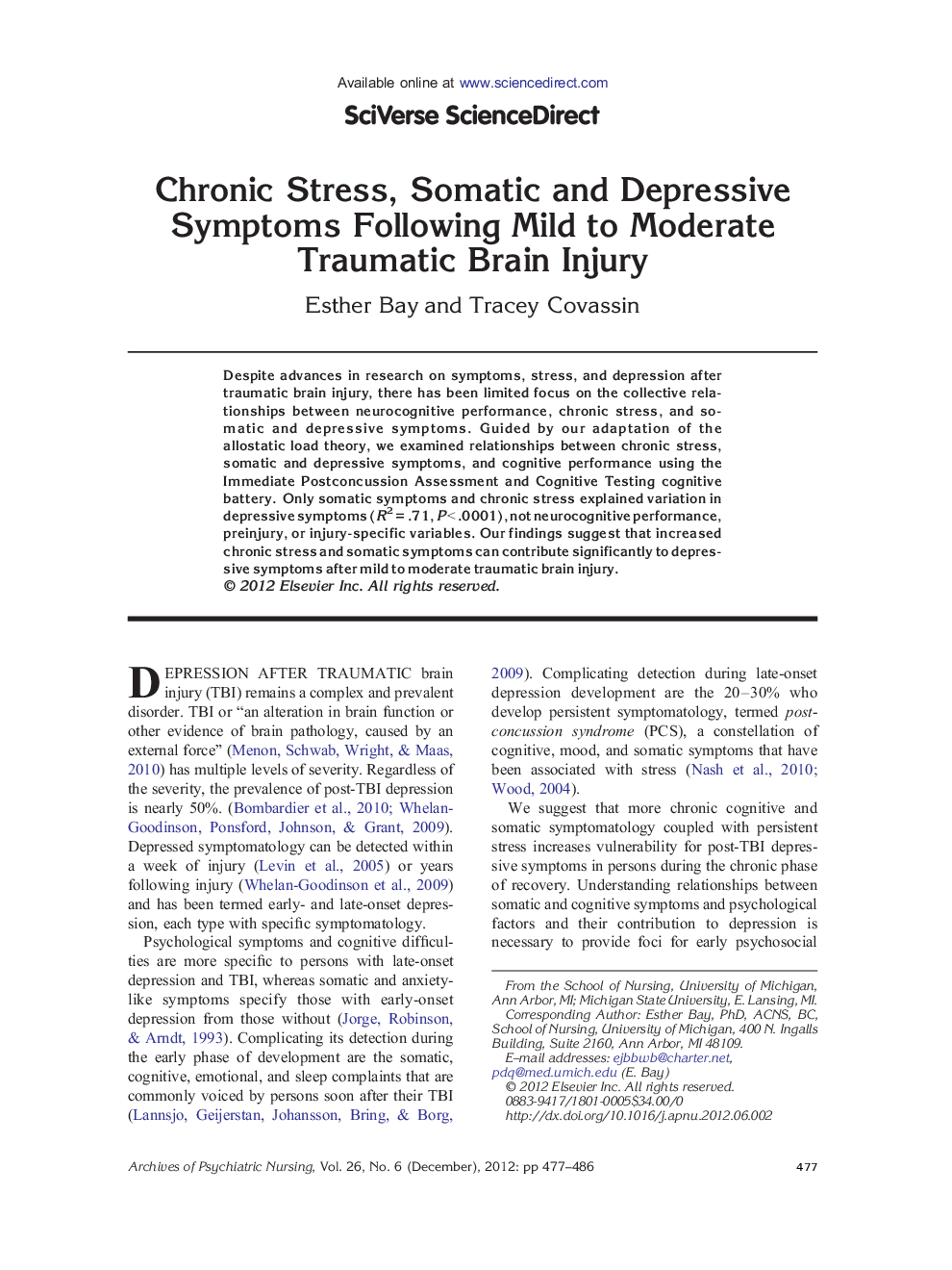| Article ID | Journal | Published Year | Pages | File Type |
|---|---|---|---|---|
| 316244 | Archives of Psychiatric Nursing | 2012 | 10 Pages |
Despite advances in research on symptoms, stress, and depression after traumatic brain injury, there has been limited focus on the collective relationships between neurocognitive performance, chronic stress, and somatic and depressive symptoms. Guided by our adaptation of the allostatic load theory, we examined relationships between chronic stress, somatic and depressive symptoms, and cognitive performance using the Immediate Postconcussion Assessment and Cognitive Testing cognitive battery. Only somatic symptoms and chronic stress explained variation in depressive symptoms (R2 = .71, P < .0001), not neurocognitive performance, preinjury, or injury-specific variables. Our findings suggest that increased chronic stress and somatic symptoms can contribute significantly to depressive symptoms after mild to moderate traumatic brain injury.
